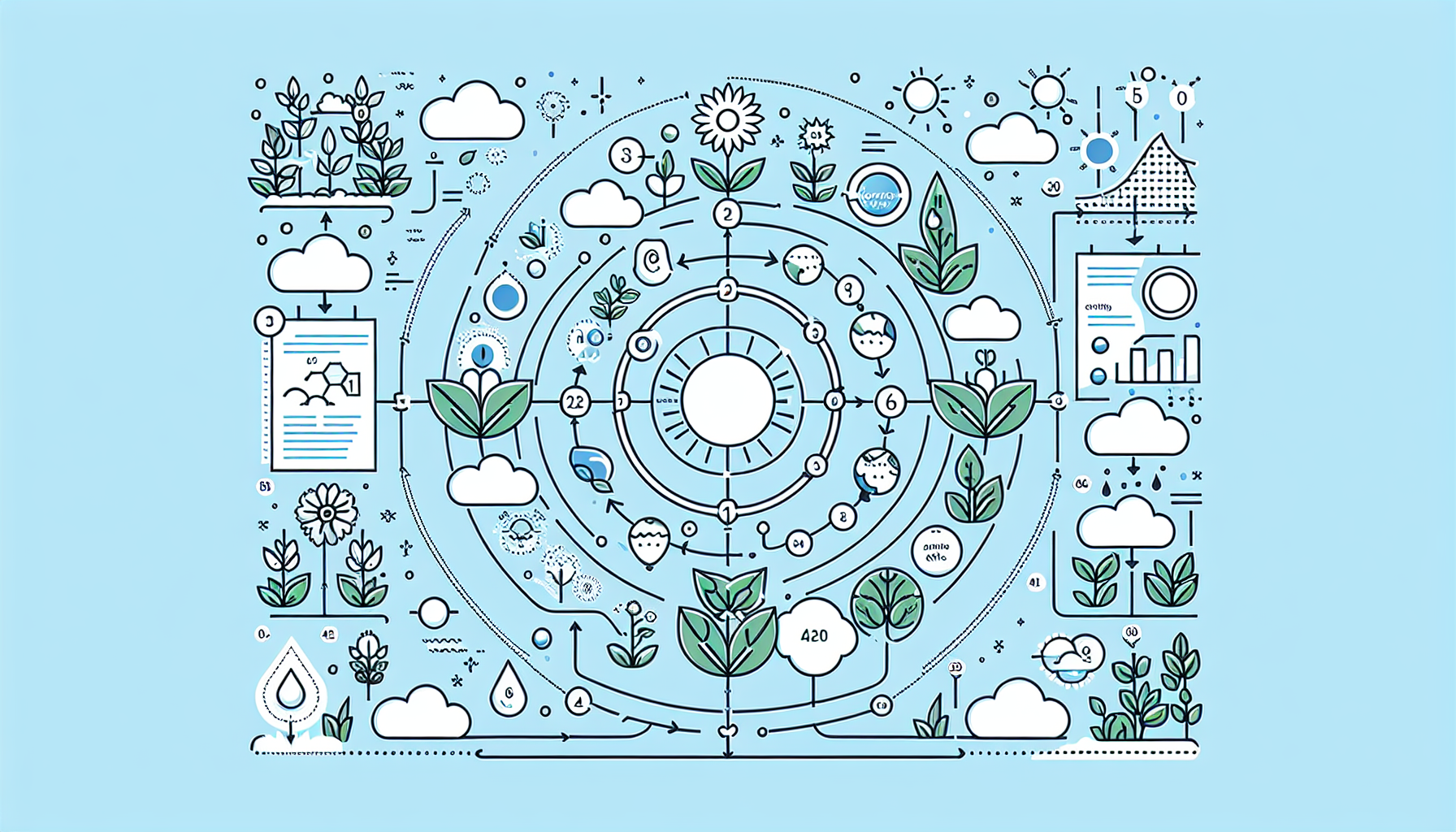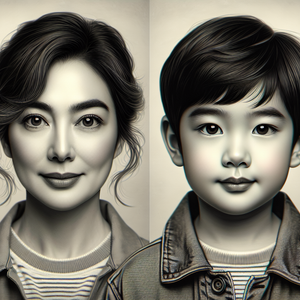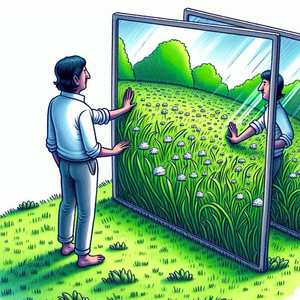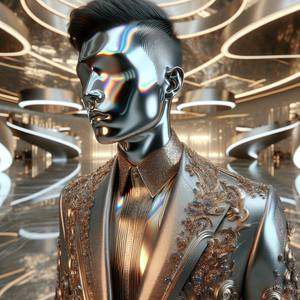AI and the Future of Storytelling

AI's capacity to generate narratives has attracted significant attention, with tools like OpenAI's GPT-3 showcasing the potential of machine learning in creative writing. These AI systems can analyze vast datasets of existing literature, learning patterns in language, structure, and character development. The result? Stories that can mimic human-like creativity. One notable example is the short story "The Day a Computer Wrote a Novel," which won a literary competition in Japan in 2021. This event raised profound questions about authorship and creativity, highlighting a critical shift: as AI-generated narratives gain recognition, the lines between human and machine creativity blur. This phenomenon prompts us to reconsider what it means to be an author and challenges our traditional notions of creativity.
Interactive Narratives: Engaging Audiences in New Ways
AI is also paving the way for interactive storytelling, particularly in video games and digital media. Traditional narratives often follow a linear path, but with AI, stories can adapt in real-time based on user decisions or preferences. Games like "AI Dungeon" allow players to interact with a dynamically generated narrative, leading to unique experiences each time they play. This interactivity not only increases engagement but also empowers audiences to become co-creators of their stories. By utilizing AI, storytellers can craft personalized narratives that resonate more deeply with individuals, fostering a sense of agency and connection that was previously unattainable. The shift from passive consumption to active participation marks a significant evolution in how stories are told and experienced.
Augmenting Creative Processes: Collaboration Between Humans and Machines
While AI offers remarkable capabilities, it is essential to recognize it as a collaborative tool rather than a replacement for human creativity. Many writers and creators are beginning to experiment with AI as a partner in the storytelling process. By using AI-generated prompts or suggestions, authors can overcome creative blocks, explore new genres, and even discover fresh perspectives on familiar themes. For instance, the author Robin Sloan has employed AI to help brainstorm ideas for his novels, integrating machine-generated concepts into his creative process. This collaboration can lead to unexpected and innovative narratives, demonstrating that technology can enhance, rather than diminish, the human touch in storytelling. The relationship between human creators and AI can be seen as a symbiotic one, where each party contributes to the richness of the narrative.
Ethical Considerations and the Future of AI in Storytelling
As AI continues to influence storytelling, ethical considerations arise. Questions about ownership, authenticity, and the potential for biased narratives must be addressed. For example, if an AI generates a story based on data that reflects societal biases, the narratives produced may inadvertently perpetuate stereotypes. It is crucial for creators and technologists to establish guidelines that promote ethical storytelling practices and ensure diverse representation in AI training data. Moreover, the proliferation of AI-generated content raises concerns about the dilution of human creativity and the potential for a homogenized storytelling landscape. As we look to the future, it is imperative that we develop frameworks that not only promote innovation but also uphold the values of inclusivity and diversity. By doing so, we can harness AI's potential while preserving the richness of the human experience. Looking ahead, the future of storytelling appears promising, with endless possibilities for innovation. As AI technology advances, we may see even more sophisticated narratives that can adapt to individual preferences and cultural contexts, further enriching the storytelling landscape.
AI's integration into storytelling represents a profound evolution in how narratives are created, shared, and experienced. By generating stories, facilitating interactive experiences, and collaborating with human creators, AI is redefining the boundaries of creativity. As we embrace this new frontier, it is imperative to navigate the ethical implications and ensure that the stories we tell reflect the richness of the human experience. The intersection of AI and storytelling not only opens up new avenues for creativity but also challenges us to consider what it means to be a storyteller in the 21st century. As technology continues to evolve, so too will our understanding of narrative, potentially leading to a future where storytelling is as diverse and dynamic as the human experience itself.
AI Narrative Designer
Video game companies like Ubisoft, interactive media startups, and educational tech firms.
Core Responsibilities
Develop interactive storytelling experiences that leverage AI algorithms to adapt narratives based on user input.
Collaborate with game developers and writers to create dynamic storylines that respond to player decisions.
Conduct user testing to refine narrative structures and enhance player engagement.
Required Skills
Proficiency in scripting languages (e.g., Python, JavaScript) and familiarity with AI tools (e.g., GPT-3).
Strong storytelling and creative writing skills, with an understanding of narrative theory.
Experience in game design or interactive media, preferably with a portfolio showcasing interactive projects.
AI Ethics Consultant
Nonprofit organizations, tech companies like Google or Microsoft, and consulting firms specializing in AI ethics.
Core Responsibilities
Analyze and address ethical implications of AI-generated content in storytelling, ensuring the avoidance of bias and promoting inclusivity.
Develop guidelines and frameworks for ethical AI use in creative industries, collaborating with technologists and creators.
Conduct workshops and training sessions on best practices for ethical storytelling.
Required Skills
Background in ethics, philosophy, or social sciences, with a focus on technology’s impact on society.
Strong analytical skills and the ability to evaluate AI systems and their outputs critically.
Excellent communication skills for presenting complex concepts to varied audiences.
AI Content Curator
Digital publishing houses, content platforms like Medium, and media companies like BuzzFeed or Vox Media.
Core Responsibilities
Curate and manage collections of AI-generated stories and interactive narratives for platforms or publications.
Evaluate the quality and creativity of AI-generated content, ensuring it meets editorial standards.
Collaborate with AI developers to refine content generation tools and improve output quality.
Required Skills
Strong editorial skills and experience in content curation, ideally within literary or multimedia domains.
Familiarity with AI technologies and their applications in content creation.
Ability to analyze trends in storytelling and assess audience preferences.
Creative Technologist
Creative agencies, tech startups focused on storytelling innovations, and media companies.
Core Responsibilities
Experiment with AI tools to develop innovative storytelling formats across various media (e.g., VR, AR, and interactive websites).
Collaborate with artists and writers to integrate technology into creative workflows, enhancing the storytelling process.
Prototype and test new storytelling experiences, gathering feedback for iterative improvements.
Required Skills
Technical proficiency in programming and design software (e.g., Unity, Adobe Creative Suite).
Understanding of narrative structures and user experience design.
Creative problem-solving skills and a passion for exploring the intersection of technology and storytelling.
Data Scientist in Creative Industries
Media companies, advertising agencies, and research firms focused on entertainment analytics.
Core Responsibilities
Analyze audience data to inform the development of AI-generated narratives, ensuring they resonate with target demographics.
Work alongside writers and designers to identify trends in storytelling that can be enhanced through data-driven insights.
Develop predictive models to optimize narrative engagement and user experiences.
Required Skills
Proficiency in statistical analysis and data visualization tools (e.g., R, Python, Tableau).
Strong understanding of machine learning algorithms and their application in content generation.
Excellent communication skills to present findings and collaborate with creative teams.


